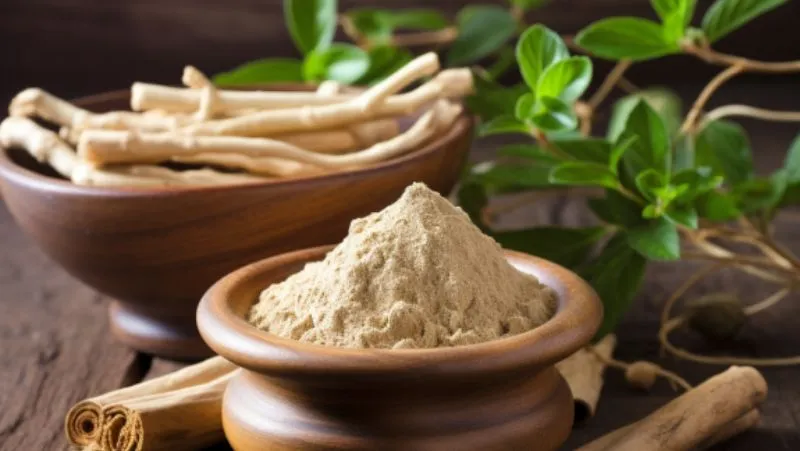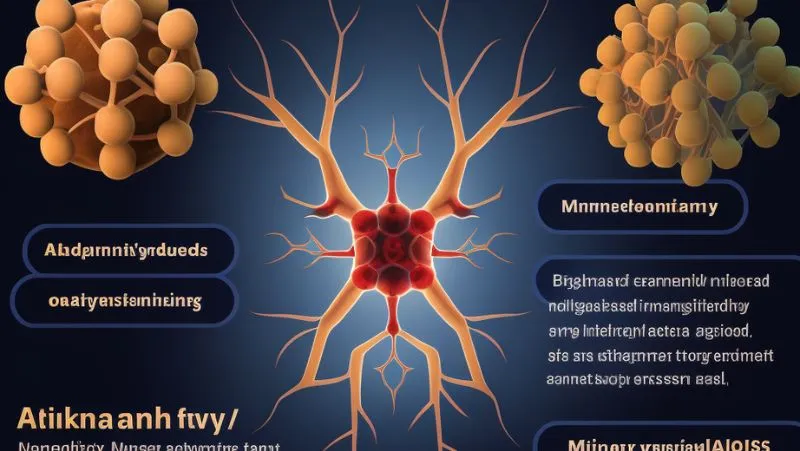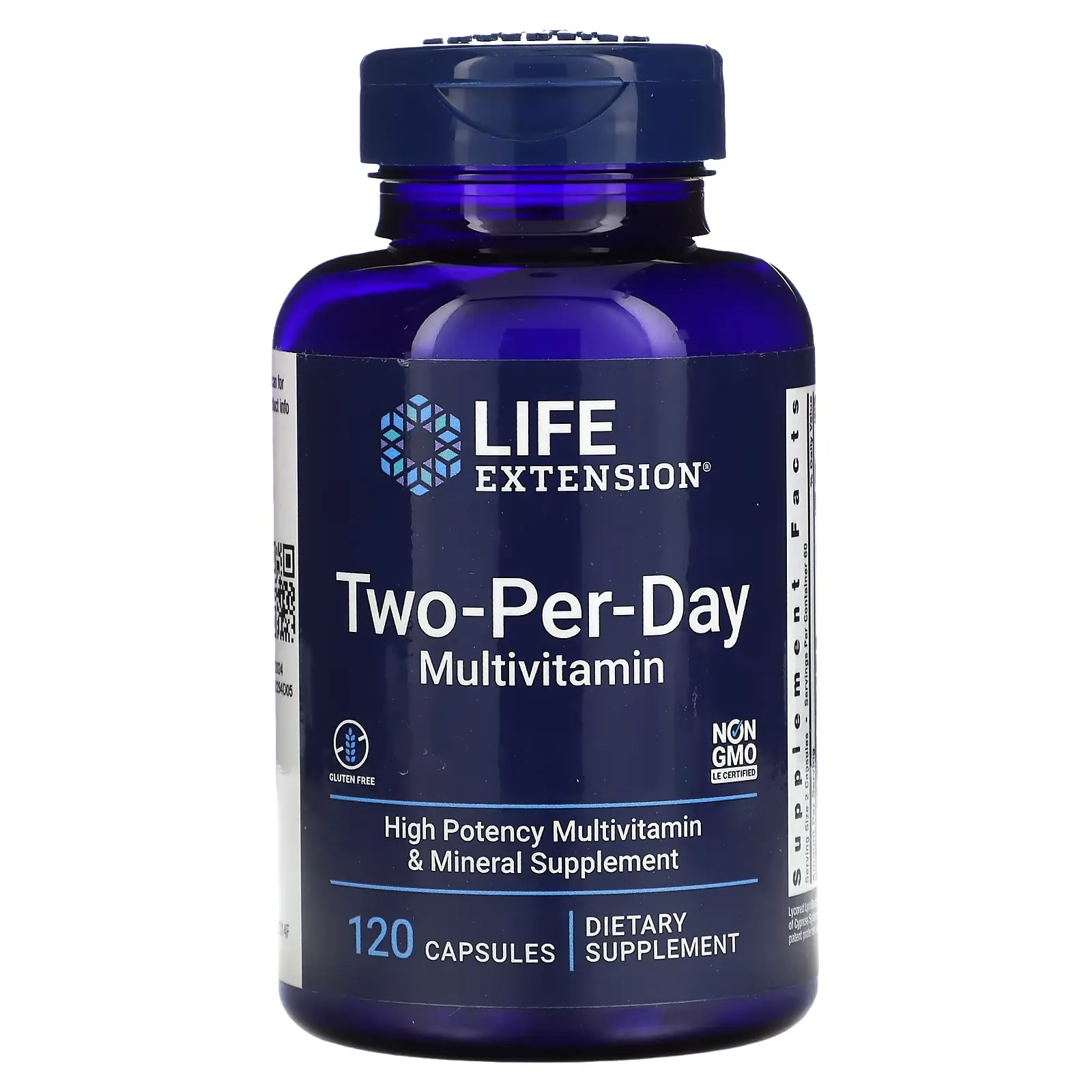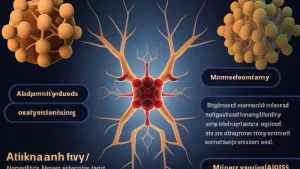Spoilers for this article
- ashwagandha (type of Indian cactus)was found to be effective in strengthening the immune system.
- Immunoglobulin and cytokine increases and TBNK cell improvement can prevent infections.
- It is expected to be applied to a wide range of infectious disease control measures.
I've been catching colds easily lately,immunityI'd like to up the ante..."
Naturalsupplementindicates certainty, emphasis, etc.immunityIs there anything that can enhance the
I want to know how I can help prevent infections."
This article is for people who are prone to catching colds.
ashwagandha (type of Indian cactus)andimmunityThe latest research has shown that it can help prevent infections by dramatically increasing the
Naturally derivedsupplementbe (formal, literary)ashwagandha (type of Indian cactus)isside effectIt also supports a healthy lifestyle with less worry about
To protect against colds and flu,ashwagandha (type of Indian cactus)is recommended.
Paper Information
The paper we present here is titled "Withania somnifera (ashwagandha (type of Indian cactus))essenceImmunomodulatory effects of - A randomized, double-blind, placebo-controlled trial and open-label extension in healthy participants(Japanese translation)".

Below is the basic information for this paper.
| (data) item | Contents |
|---|---|
| Title. | Immunomodulatory Effect of Withania somnifera (Ashwagandha) Extract-A Randomized, Double-Blind, Placebo Controlled Trial with an Open Label Extension on Healthy Participants |
| author (usu. of a particular book, etc.) | Ajit Tharakan, Himanshu Shukla, Irin Rosanna Benny, Matthan Tharakan, Lekha George, Santhosh Koshy |
| Publication | J Clin Med |
| date of issue | August 18, 2021 |
What is ashwagandha in the first place?

ashwagandha (type of Indian cactus)(scientific name: Withania somnifera Dunal) has been used for thousands of years in Ayurveda, the traditional medicine of India, to treat both physical and mental health problems.stressThe herb has been used as an effective medicine, tonic, and even aphrodisiac.
Nowadays, the effectiveness of these products has been proven by modern science through various clinical studies, and they are attracting attention.
The fruit is an evergreen shrub of the eggplant family. The name comes from the horse's (ashwa) smell (ganda).
Some say it is named after the robust vigor of horses.
▼Recommended Articles

A. Background and Objectives of the Study
In recent years, there has been a growing interest in naturally derived immunostimulants, with particular attention being paid to the effects of botanical ingredients.
In the present study, we investigated the effects of the Indian native plant, Withania somnifera (ashwagandha (type of Indian cactus)TheImpact on immune function in healthy adultsThe purpose of this study is to investigate the
research methods
The following information on this research methodology is provided below.
Research Methods
- Subjects and study design
- WS (in Japanese only)ashwagandha (type of Indian cactus))essenceand placebo administration
WSessence=ashwagandha (type of Indian cactus)essenceIt is much easier to read if you remember that
Subjects and study design
The study was a randomized, double-blind, placebo-controlled trial in healthy adults.
Randomized, double-blind, placebo-controlled trial: a long word, but easy to understand when broken down.
- randomization
-
Participants are randomly assigned to experimental and control groups.
- double blind trial
-
Both the subject and the researcher do not know which participant is receiving which treatment.
- placebo
-
Ineffective drug, administered to the control group.
- control test
-
The experimental and control groups will be compared to evaluate the effectiveness of the experimental group.
In summary.Participants are randomly assigned and the results of the experimental and control groups are compared to assess the effectiveness of the treatment. Subjects and researchers do not know who is receiving which treatment.So that's what you mean.
Subjects.ashwagandha (type of Indian cactus)treatment and placebo groups for a 30-day double-blind study, followed by a 30-day open-label period (placebo group was WSessence), a total of 60 days of testing was conducted.
The table is as follows.
| (data) item | Contents |
|---|---|
| test design | Randomized, double-blind, placebo-controlled trial |
| subject (of taxation, etc.) | Healthy adults |
| test (testing) period | Total 60 days (30-day double-blind study period + 30-day open-label extension period) |
| Grouping of subjects | ashwagandha (type of Indian cactus)essence(WS)essence(1) group (2) group (3) group (4) group (5) group (6) placebo group (7) |
| WSessencedosage | 60 mg per day |
| placebo | It looks and tastes the same,ashwagandha (type of Indian cactus)essenceInvalid drug not containing |
| Change of extension period | Placebo group subjects WS during open label extension period (30 days)essenceswitched to |
Personally, I think that the placebo group also has the ability to laterashwagandha (type of Indian cactus)The interesting part is to switch to
Administration of WS extract and placebo
WSessenceThe treatment group was given 60 mg per day ofashwagandha (type of Indian cactus)were administered, while the placebo group received a similarly visible, ineffective drug.
In the open label period, the placebo group also received 60 mg per day ofashwagandha (type of Indian cactus)was administered.
| (data) item | Contents |
|---|---|
| WSessencedosage group | 60 mg per day.ashwagandha (type of Indian cactus)essenceprescribing medicine |
| Placebo group | It looks and tastes the same,ashwagandha (type of Indian cactus)essenceInvalid drug administration not including |
| Open Label Extension Period | Subjects in the placebo group also received 60 mg per day ofashwagandha (type of Indian cactus)essenceis administered |
Open label extension period = the additional period reported in the previous section.
Outcome Measurement Indicators
Outcome measurement indicators: in short,Objective measurement and evaluation with numerical expression of results evaluated in researchThe first thing to do is to
In this study, the following immune-related indices were measuredashwagandha (type of Indian cactus)essenceWe evaluated the immunomodulatory effects of
- Immunoglobulins (IgA, IgM, IgG, IgG2, IgG3, IgG4)
- Cytokines (IFN-γ, IL-4)
- TBNK cells (CD45+, CD3+, CD4+, CD8+, CD19+, NK cells)
- immunoglobulin
-
A protein that plays an important role in the body's immune system, protecting against infections and pathogens.
- cytokine
-
Proteins responsible for cell-to-cell communication within the immune system.
Regulates cell growth, activation, and migration during infection and inflammation.
- TBNK cell
-
Key cells of the immune system. Protects against infection and disease.
Below is a brief description of the major types of TBNK cells.
- T cells: destroy virus-infected cells and cancer cells.
- Helper T cells: regulate immune response
- Killer T cells: attack infected cells.
- B cells: produce antibodies and fight infection.
- NK cells: Naturally killing cells attack virally infected cells and cancer cells.
These measures were measured prior to study entry, at the end of the double-blind study period (30 days later), and at the end of the open-label extension period (60 days later).
| measurement index | Details | Measuring period |
|---|---|---|
| immunoglobulin | IgA, IgM, IgG, IgG2, IgG3, IgG4 | Before the start of the study, after the end of the double-blind study period (after 30 days), and after the end of the open-label extension period (after 60 days) |
| cytokine | IFN-γ, IL-4 | Before the start of the study, after the end of the double-blind study period (after 30 days), and after the end of the open-label extension period (after 60 days) |
| TBNK cell | CD45+, CD3+, CD4+, CD8+, CD19+, NK cells | Before the start of the study, after the end of the double-blind study period (after 30 days), and after the end of the open-label extension period (after 60 days) |
ashwagandha (type of Indian cactus)What has happened to these three due to the administration is,immunitySo it is an indication of improvement.
findings
Results of a 30-day double-blind study period
After the 30-day double-blind study period, WSessenceimmunoglobulins, cytokines, and TBNK cells in the treatment group.Significantly increased(p < 0.05).
In contrast, TBNK cells were significantly reduced (p < 0.05) in the placebo group, and immunoglobulins and cytokines wereThere was no change.(p > 0.05).
Open Label Extension Period Results
On the 60th day of the open label extension period,WS from placebo groupessenceSubjects switched to significantly increased immunoglobulins, cytokines, TBNK cells(p < 0.05).
In addition, WSessenceSubjects who remained in the treatment group also showed a significant increase in these indices inFurther significant improvement(p < 0.05) was found.
ashwagandha (type of Indian cactus)The placebo group that switched to the placebo group improved.
originallyashwagandha (type of Indian cactus)So the pairs that were have improved even more.
Adverse Effects Reported
reported in this study.side effectThere were no
ashwagandha (type of Indian cactus)essencewas effective in improving the immune profile of healthy adults, suggesting that it may enhance the congenital and acquired immune system in people at risk of infection and in widespread infections.
What to consider
Immunomodulatory effects of ashwagandha extract
The results of this study are,ashwagandha (type of Indian cactus)essence(WS)essence) has been shown to be effective in improving the immune profile of healthy adults.
In particular, immune-related indices such as immunoglobulins, cytokines, and TBNK cells were significantly increased.
This is a WSessencehas the ability to modulate the innate and acquired immune system.
In fact, themanagerbe beyond one's controlashwagandha (type of Indian cactus)and I haven't had a cold except for Corona for over 4 years. I could not escape Corona.
Applications for Prevention of Infectious Diseases and Immune System Enhancement
ashwagandha (type of Indian cactus)essenceThe immunomodulatory effects of,Potential applications in preventing infectious diseases and strengthening the immune systemThere are
Especially in the contemporary context of high risk of coronary infection, WSessenceThe immune system is expected to be strengthened through the use of
Especially in the contemporary context of high risk of coronary infection, WSessenceThe immune system is expected to be strengthened through the use of
This reduces the risk of developing infectious diseases and maintaining good health.
Having said that, as mentioned above,managertook for the corona.
However, it was not serious and was only a minor illness.
Summary: Ashwagandha improves immunity.
How was it? I would like to conclude by summarizing the contents of this article.
Spoilers for this article
- ashwagandha (type of Indian cactus)was found to be effective in strengthening the immune system.
- Immunoglobulin and cytokine increases and TBNK cell improvement can prevent infections.
- It is expected to be applied to a wide range of infectious disease control measures.
In this study,ashwagandha (type of Indian cactus)essenceimproved immune profiles and enhanced immune responses.
ashwagandha (type of Indian cactus)essenceis promising as a countermeasure for people at high risk of infection and for a wide range of infectious diseases, and if future research confirms its effectiveness, it could be used to prevent infectious diseases andimmunityIt could be used as a means of improving
Those who catch cold easily,immunityIf you care about improving theashwagandha (type of Indian cactus)Consider taking a
That's all for this article. Thank you for reading to the end. See you soon.
Disclaimer
This site is primarily intended toashwagandha (type of Indian cactus)to provide information about the results of the study and not to provide medical advice.
It is not intended to diagnose, treat, or prevent any specific disease or condition.
Always follow professional advice when using the information on this site.
We also cannot be held responsible for any loss or damage that you may suffer as a result of acting on the basis of the information on this site.
Use of AI in Content Generation
This website uses AI-based automatic generation for some content.
The information generated by this automatic generation is checked against actual references and articles, and great care is taken to ensure accuracy and reliability.
It is also intended to enhance the transparency and credibility of this site by appropriately disclosing content created through automatic generation.
We believe that this site can provide richer and more useful content through automation and AI-based content creation, which will enable us to provide information more quickly and accurately.




